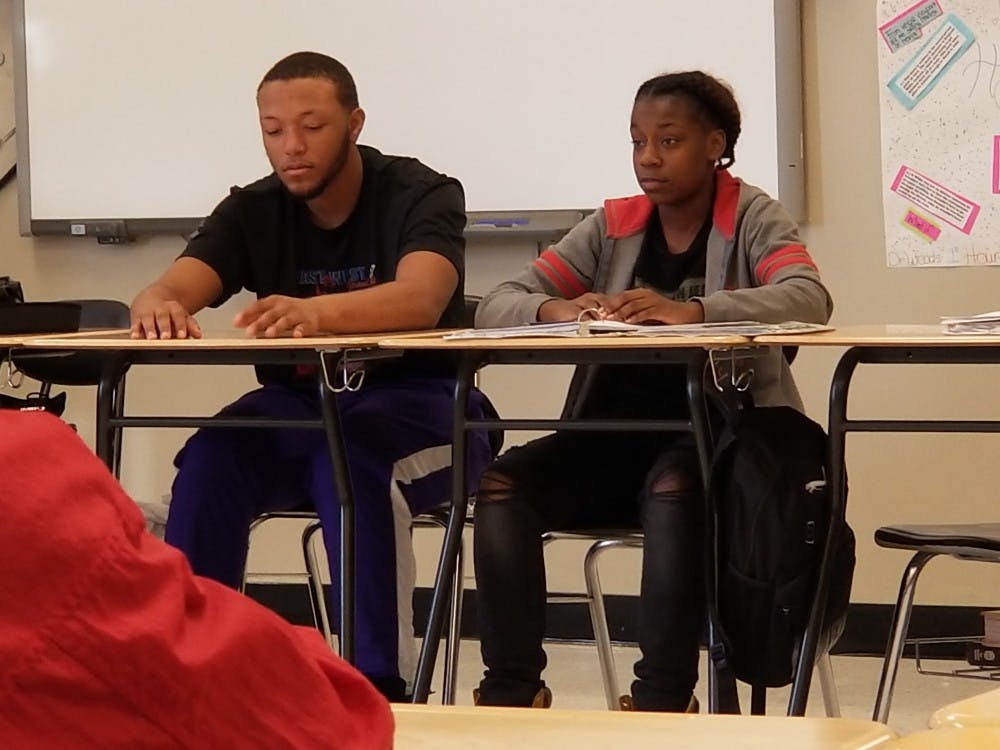Earlier this winter, Detroit Public Schools Community District (DPSCD) Superintendent Dr. Nikolai Vitti visited Dr. Whitney Woods’ fourth hour English class for seniors at Southeastern High School. We spent the hour questioning him on issues of mutual concern. After the discussion, I reflected on some of the things he shared.
“The most difficult thing for me is helping people understand things can be done differently,” Vitti said.
I believe that this comment is explicitly directed toward the state and federal government, which have not been as supportive of school districts like DPSCD. He makes it clear that a lot that of issues with the government is about race. I completely agree with Vitti on this point.
In today’s America, under the presidency of Donald Trump, it is difficult for impoverished children of color to succeed. For example, Trump is demanding a wall be built across the southern border of the United States to keep people of color out of the country and deporting immigrants who want to get an education in the U.S. Mr. Trump also used profane language when talking about African nations and he has poor relations with African Americans.
Unlike Trump, who has created tension with people of color, Superintendent Vitti has stepped up to the plate to be a voice advocating for a quality education for African Americans and people of color in DPSCD.
That’s just one issue Vitti and I are in agreement. Another major problem DPSCD faces is out of school suspensions (OSS), which accomplish nothing but actually make a situation worse than what it has to be. Students who miss school for multiple OSS find it easy to unplug from their education and some eventually drop out.
“Too many out of school suspensions causes a student to become disengaged.” Vitti said.
The Superintendent also suggested we bring back alternative schools, but only in order to find out why a child is misbehaving. The alternative school wouldn’t stand as a place to dump unorderly children; it would be used to help them get through the anger they are dealing with. Instead of dropping out, students can get another chance at an alternative school.
Vitti, for example, had behavioral issues as a middle and high school student, but no one ever tried to figure out why. Vitti explained he was acting out as a kid because he was angry that his father wasn’t there and he had difficulty doing the school work. In my opinion, the alternative schools could have played a positive impact on Vitti’s development as a student.
Following Vitti’s visit, our classroom was also graced with the presence of DPSCD vice president Angelique Peterson-Mayberry. Peterson-Mayberry became a member of the DPSCD Board when her son, a student at Communication & Media and Arts, participated in a protest against the horrific conditions in which students were being forced to learn.
I asked her how we, as students, motivate her?
“When you take advantage of opportunities we give to you and you come back,” she said. “We all need you here so we need to stand up and do what we can to help you. I stand up to motivate the next generation. All of us want to give you what we have and we want to receive what you have.”
I believe it is important to have school board members who listen to what we have to say, and that what we say matters.
Overall, I believe that the DPSCD is being run by two powerful leaders who care about all students. We are extremely thankful that the Board Vice President and Superintendent joined our class and answered our questions.
I believe that Vitti and Peterson-Mayberry really care about the students in DPSCD. I also believe that they are working hard for a better school district for all children, and that they will change DPSCD for the better.
Yet one question still remains: Is DPSCD still in decline and how do we -- adults and students - work together to improve it? Students at Southeastern High School are ready to help.



